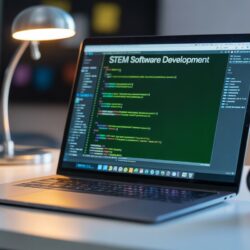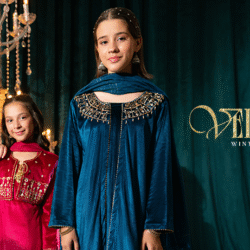Singapore’s Early Learning: Excellence in Early Childhood Education Singapore
Walking through the vibrant corridors of a Pasir Ris preschool, I witnessed something remarkable. Four-year-old Aarya was carefully showing a new classmate how to create rangoli patterns while explaining the Diwali festival in simple English, then switching to Tamil to include another friend in their conversation. This beautiful moment exemplifies the unique strengths of early childhood education Singapore—a system that nurtures global citizens while preserving cultural heritage.
Early childhood diploma Singapore represents a sophisticated blend of international best practices and local cultural wisdom. Having visited preschools across the island from Woodlands to Jurong, I’ve observed how early childhood education Singapore creates learning environments that balance academic excellence with character development and cultural awareness.
Learning Through Singapore’s Unique Lens
The curriculum in early childhood education Singapore thoughtfully incorporates local context to make learning meaningful and relevant. I’ve observed children exploring Singapore’s rich biodiversity through nature walks, learning mathematical concepts using local currency in pretend play, and developing language skills through stories about Singapore’s history and diversity. This approach helps children connect their learning to their daily lives while building a strong sense of national identity.
What makes early childhood education Singapore particularly effective is how it transforms everyday Singaporean experiences into learning opportunities. In one Tampines preschool, I watched children engaged in a “hawker centre” project where they practiced counting while “ordering” food, learned about different cultural cuisines, and developed social skills through role-playing as both customers and stall holders. The teacher skillfully integrated multiple learning objectives into this authentic Singaporean context.
The Science Behind the Play
Quality early childhood education Singapore is grounded in solid research about how young children learn best. The classrooms that have most impressed me are those where every activity, no matter how playful it appears, serves specific developmental purposes. I’ve seen children building with blocks while actually developing spatial reasoning and problem-solving skills, engaging in water play that teaches scientific concepts, and participating in group activities that build executive function and social-emotional learning.
The educators in early childhood education Singapore understand that play is children’s work. They carefully observe children’s interests and use them to create learning experiences that are both engaging and educational. Rather than pushing formal academics too early, they focus on developing the foundational skills and learning dispositions that children need for long-term success.
Bilingualism as a Cognitive Advantage
The bilingual approach in early childhood education Singapore provides benefits that extend far beyond language acquisition. Research shows that children who learn multiple languages from an early age develop enhanced cognitive flexibility, better problem-solving skills, and improved executive function. In Singapore’s preschools, I’ve witnessed children demonstrating these advantages through their ability to think creatively, adapt to new situations, and approach challenges from different perspectives.
The method used in early childhood education Singapore makes language learning natural and enjoyable. Rather than treating second languages as separate subjects, teachers integrate them throughout the day—using Mandarin during music activities, Malay during cultural lessons, and Tamil during storytelling sessions. This immersion approach helps children develop genuine proficiency and comfort with multiple languages.
Holistic Development in Practice
Modern early childhood education Singapore takes a comprehensive approach to child development. Beyond academic readiness, programs focus on physical health, creative expression, and social-emotional growth. I’ve been particularly impressed by how Singapore’s preschools help children develop resilience, empathy, and self-regulation through carefully designed activities and daily routines.
The physical environments in quality early childhood education Singapore programs support this holistic development through well-designed learning spaces. Classrooms typically include areas for different types of learning—quiet spaces for reading and reflection, active zones for construction and movement, creative corners for art and music, and collaborative spaces for group projects. Each area is equipped with materials that invite exploration and discovery.
Teacher Excellence and Professionalism
The quality of early childhood education Singapore depends heavily on the expertise and dedication of its educators. The teachers I’ve observed combine deep knowledge of child development with practical teaching skills and genuine care for each child’s wellbeing. They understand how to create learning experiences that are both challenging and supportive, helping children reach their potential while maintaining their love of learning.
These educators in early childhood education Singapore are masters of observation and documentation. They carefully track each child’s progress, noting their strengths and areas for growth, and use this information to plan meaningful learning experiences. The best teachers I’ve seen are those who view themselves as partners in learning—guiding children’s discovery while remaining open to learning from them as well.
Preparing for Singapore’s Future
While early childhood education Singapore provides excellent preparation for primary school, its true value lies in developing the capabilities children need to thrive in the 21st century. Through my observations, I’ve noticed that children from quality early childhood programs demonstrate strong critical thinking skills, creativity, collaboration abilities, and adaptability—precisely the qualities needed in today’s rapidly changing world.
The social skills nurtured in early childhood education Singapore are equally important. As children interact with peers from diverse backgrounds, they learn to communicate across cultures, consider different perspectives, and work together to solve problems. These capabilities will serve them well in Singapore’s multicultural society and globalized economy.
Choosing Quality Early Education
For families exploring options in early childhood education Singapore, understanding what constitutes quality is essential. The best programs feature low student-teacher ratios, well-designed learning environments, and educators who are both qualified and passionate about early childhood development. They maintain strong partnerships with families and create communities where children feel safe, valued, and inspired to learn.
The diversity within early childhood education Singapore means there are programs to suit different needs and preferences. Some emphasize specific educational philosophies while others focus on particular aspects of development. The key is finding an environment where your child will be happy and engaged, and where the approach aligns with your family’s values.
As I watched Aarya and her friends continue their cultural exchange, now joined by children from other ethnic backgrounds, I realized the profound impact of quality early childhood education Singapore. These children were developing not just academic skills but the cultural awareness, communication abilities, and empathy needed to build a harmonious multicultural society.
The investment in early childhood education Singapore creates benefits that extend throughout children’s lives and across generations. By providing strong foundations during the most crucial years of development, Singapore ensures its youngest citizens are prepared to succeed academically while becoming compassionate, culturally aware, and socially responsible individuals. Through its thoughtful integration of global educational practices and local values, early childhood education Singapore offers children an exceptional start to their learning journey—one that honors Singapore’s unique heritage while preparing them for the opportunities of tomorrow.




